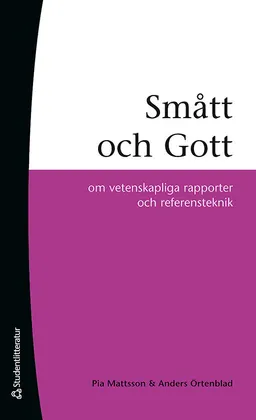

Making Corporate Social Responsibility an International Concern Norm Constructing in a Globalizing World
- Utgiven: 2007
- ISBN: 9789185445837
- Sidor: 292 st
- Förlag: Acta Universitatis Stockholmiensis
- Format: Häftad
- Språk: Engelska
Om boken
Åtkomstkoder och digitalt tilläggsmaterial garanteras inte med begagnade böcker
Mer om Making Corporate Social Responsibility an International Concern Norm Constructing in a Globalizing World (2007)
I januari 2007 släpptes boken Making Corporate Social Responsibility an International Concern Norm Constructing in a Globalizing World skriven av Lisbeth Segerlund. Den är skriven på engelska och består av 292 sidor. Förlaget bakom boken är Acta Universitatis Stockholmiensis.
Köp boken Making Corporate Social Responsibility an International Concern Norm Constructing in a Globalizing World på Studentapan och spara pengar.
Referera till Making Corporate Social Responsibility an International Concern Norm Constructing in a Globalizing World
Harvard
Oxford
APA
Vancouver



















